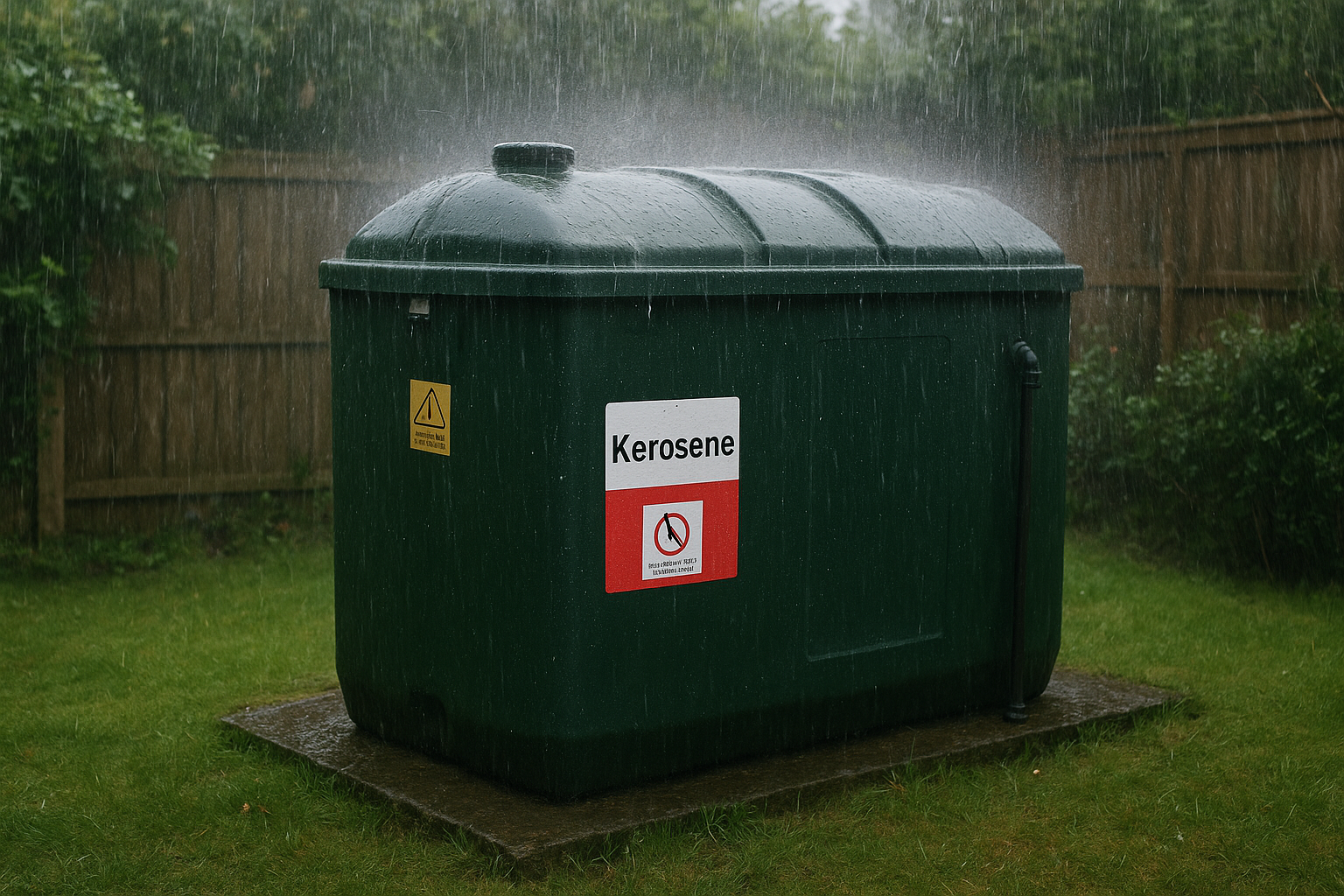As the temperatures drop and central heating systems are switched on, it's essential to make sure your heating oil tank is clean, dry, and working properly. Even a small amount of water in your oil tank can lead to serious problems - from fuel contamination to costly boiler repairs.
Water is one of the most common causes of fuel system failure in kerosene storage tanks. Since oil and water don't mix, any water that enters your tank sinks to the bottom, where it can be drawn into the fuel line and damage your boiler or range cooker.
The good news? With a few simple checks and maintenance steps, you can easily prevent water build-up and keep your heating system running efficiently.
Water can enter an oil tank in two main ways: rainwater and condensation.

Outdoor oil tanks are more vulnerable to the elements, especially during period of heavy rain and strong winds. Water can leak into your tank through:
Regularly inspecting your tank can help you spot these issues before they cause serious damage.
Condensation is another major cause of water contamination in heating oil tanks - particularly during warmer months.
As outdoor temperature fluctuate, warm moist air can be drawn into the tank. When the air cools down, moisture forms droplets inside the tank, which collects at the bottom as water. Over time, this can lead to sludge formation and fuel quality issues.
Checking your domestic oil tank for water contamination is a simple but important maintenance task. You can book an inspection with one of our expert team members, who will visit your property and carry out a full test. Alternatively, you can check the tank yourself using water-finding paste, available from most major DIY stores.
To use the paste, apply a small amount to the end of a dry dipstick and lower it into your tank. The paste starts off gold in colour - if it turns red, this indicates the presence of water in your oil tank, and you should contact a qualified heating engineer as soon as possible. Always wear protective gloves when handling the paste as it can stain and both the paste and kerosene fuel can be hazardous.
Preventing water from entering your oil tank is much easier (and cheaper) then fixing a contaminated system. Follow these simple tips to protect your fuel:
If you suspect water in your oil tank, don't ignore it. Over time water can:
Leaving water untreated can lead to expensive repairs - or even the need for a new boiler.
Removing water from a heating oil tank should always be done by a trained professional. Proper disposal is essential due to strict environmental regulations.
If you think your tank has water contamination, contact our team today. We can inspect your tank, remove the water safely, and help prevent future issues - keeping your heating system efficient and reliable all year round.
With our dedicated services to all domestic homeowners, commercial businesses, and agricultural farms across Lancashire, Cumbria, and Cheshire, WCF North West is here for you with our second-to-none services.
For over 100 years, WCF North West has supplied homes, businesses, and farms throughout the North West with the best prices available. Whether you need home heating oil, bulk diesel, or gas oil, this is the service for you! From depot to depot, our hardworking team is committed to providing you the best customer experience possible, through delivering great value for money and going above and beyond expectations. We also offer exclusive deals and brilliant schemes all year round to keep your trust in us at a high, such deals include recommending a friend and schemes such as the winter priority delivery, which ensures priority delivery to our elderly and most vulnerable customers.
WCF North West also offers suitable and flexible payment plans to our customers, we are here to serve you!